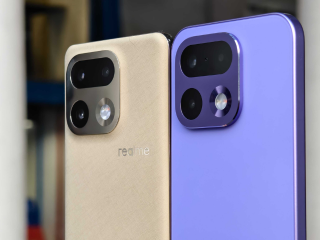- Home
- Apps
- Apps Features
- Pegasus WhatsApp Hack, Mi Note 10 Teasers, MIUI 11 Update, Jio vs COAI, and More Tech News This Week
Pegasus WhatsApp Hack, Mi Note 10 Teasers, MIUI 11 Update, Jio vs COAI, and More Tech News This Week
WhatsApp was in the headlines for suing the Israel-based NSO Group due to the latter's Pegasus surveillance tool.

WhatsApp Pegasus hack was reported back in May, however, it has re-emerged thanks to a lawsuit
WhatsApp hack Pegasus, first reported back in May, is back in the news again with the Facebook-owned company this week suing NSO Group for allegedly helping spies hack phones around the world. While the move was hailed as unprecedented by some, it also reawakened governments about the need to safeguard their citizen's privacy, and to ask WhatsApp some tough questions. Apart from this, the week past saw a couple of WhatsApp feature updates, a whole bunch of teasers for the upcoming launch of the Mi Note 10 and Mi CC9 Pro, as well as the launch of the Apple TV+ streaming service, and the new ‘Pro' iteration of Apple's AirPods.
Pegasus WhatsApp hack
As we mentioned, WhatsApp was in the headlines this week past for suing the Israel-based NSO Group for the latter's surveillance tool called Pegasus. The suit was filed in a US federal court, alleging that the Israeli firm had illegally helped governments hack the mobile devices of over 100 identified people globally, including the phones of journalists, human rights workers, lawyers, religious figures, and those who had been the subject of online attacks.
The lawsuit is one of the first attempts by WhatsApp to pursue legal action against those that used its platform for conducting illegal surveillance. A hacking tool developed by NSO Group – Pegasus – is thought to have been used by governments to gain access to victims' smartphones. The method used, first described back in May, exploited a vulnerability to plant spyware onto users phones through a missed video call.
It's said the NSO Group's Pegasus spyware allowed the bad actors to perform numerous types of surveillance, such as intercept communications, photos, and data, track the locations of users, and even activate the devices' cameras and microphones. The vulnerability was patched in May itself, before the first reports emerged, and users were at that point urged by WhatsApp to update their apps. 1,400 people had been alerted by the company, saying that they may have been victims of the hack.
The Pegasus malware tool is thought to be known by other names as well – Q Suite and Trident – is said to have the ability to exploit both Android and iOS based devices using a number of attack vectors. It is said to have been around for roughly three years, and have the ability to steal a variety of information from an infected device. As per Citizen Lab, it is said to have been used in 45 countries.
The NSO Group responded to the lawsuit by rejecting the allegations, saying Pegasus is used to fight terrorism, not to enable illegal surveillance. It added that clients are contractually obligated to limit the use of its technology to prevent crime and terrorism – and that using its tech for any other purposes was a misuse. "In the strongest possible terms, we dispute today's allegations and will vigorously fight them," the NSO said.
This week, WhatsApp confirmed that the spyware had been used to target Indian activists and journalists, while another report claimed that government officials in at least 20 countries had been targeted. Later in the week, the government of India demanded WhatsApp explain the breach, and enumerate what the company is doing the safeguard the privacy of citizens.
A report citing people familiar with the matter also claimed that the Indian government was concerned by WhatsApp hadn't revealed the breach in past meetings, and instead couched the information within ‘technical jargon'.
WhatsApp updates
While WhatsApp was in the news this week for the controversy around its hack, the instant messaging company also made headlines thanks to new updates. WhatsApp this week updated its app for the iPhone with new features – the app will no longer show notification badges for muted chats. There are also new alignment guidelines to help position stickers, emojis, and more when editing media. A new splash screen also makes it way to the app, while Group Privacy Settings that were unveiled in India earlier this year were rolled out globally, with one major difference. Another feature spotted later in the week on a newer version of WhatsApp for iPhone was the ability to play Netflix trailers within chats.
WhatsApp this week amidst its hacking controversy also finally brought biometric authentication to its Android app – specifically, fingerprint lock. iPhone users have had biometric authentication since February this year, and not just for Touch ID (fingerprint recognition) but also Face ID (facial recognition). Fingerprint locking first made its way to the Android platform in beta back in August.
Finally, WABetaInfo, a WhatsApp beta tracker that also details unreleased features, this week reported that WhatsApp for iPhone may get three options for dark mode, with two of them tipped at the moment. Alongside, a new beta build for WhatsApp users on Android was spotted to have a new lock icon on the app for when the dark theme is applied.
Mi Note 10, Mi CC9 Pro teasers
Xiaomi this week opened the floodgate of teasers ahead of the launch of the Mi CC9 Pro on November 5. The launch in China will also see the unveiling of the Mi TV 5 series and the Xiaomi Watch – the company's first smartwatch. Alongside, Xiaomi's global channels began teasing the Mi Note 10, and with their matching teasers so far, it appears the Mi Note 10 is the global variant of the Mi CC9 Pro – which may only be available in China. Xiaomi Poland has teased the launch of the Mi Note 10 on November 14, but it is uncertain whether the smartphone will be launched in another country before that date.
The Mi Note 10 and Mi CC9 Pro have been teased to feature a penta rear camera setup, featuring a 108-megapixel primary sensor. Further details on the rear camera setup were revealed later on, and it will include a 20-megapixel wide-angle lens camera, a 12-megapixel portrait camera, a macro camera, and a telephoto camera. 5x optical zoom and 10x hybrid zoom were also teased.
A later bunch of teasers revealed the Mi CC9 Pro aka Mi Note 10 would feature a 32-megapixel selfie camera, and that two out of the five rear cameras would feature optical image stabilisation (OIS). An official render of the Mi CC9 Pro aka Mi Note 10 was also released, showing off its curved display, while a video teaser further highlighted the phone's zooming capabilities. The Mi CC9 Pro's Green and White colour options were also shown off in renders, while Xiaomi also [confirmed the use of a 5,260mAh battery with 30W fast charging. We will know more about the Mi CC9 Pro and the Mi Note 10 next week.
MIUI 11 Global Stable ROM update rollout
To recall, Xiaomi unveiled MIUI 11 in China in September, detailing its new features that include a new font, new sounds, new productivity apps, and more. Alongside the launch of the Redmi Note 8 Pro and Redmi Note 8 in India last month, Xiaomi also revealed the features coming to the Global Stable ROM, while also detailing the update's rollout roadmap.
The first phase of rollouts ended in the week past – it was scheduled to start on October 22 and end on October 31. In the period, the Poco F1, Redmi K20, Redmi Y3, Redmi 7, Redmi Note 7, Redmi Note 7S, and Redmi Note 7 Pro were due to be updated, and right on schedule, the Redmi K20 update began rolling out on October 22, and this week, the Redmi Note 7 Pro MIUI 11 update, Redmi Note 7 / Redmi Note 7S update, Poco F1 update, Redmi K20 Pro update, Redmi Y3 update, Redmi 7 update, and Redmi Note 5 Pro update also began rolling out.
As you probably noticed, the Redmi Note 5 Pro and Redmi K20 Pro weren't part of the first phase of rollouts, and are part of the second phase, but their MIUI updates have begun rolling out. The next phase of rollouts will be from November 4 to November 12, and will include phones like the Redmi 6, Redmi 6 Pro, Redmi 6A, Redmi Note 5, Redmi 5, Redmi 5A, Redmi Note 4, Redmi Y1, Redmi Y1 Lite, Redmi Y2, Redmi 4, Mi Mix 2, and Mi Max 2. In the third phase, from November 13 to November 29, Xiaomi will roll out the MIUI 11 update to the Redmi Note 6 Pro, Redmi 7A, Redmi 8, Redmi 8A, and Redmi Note 8. Finally, the Redmi Note 8 Pro is scheduled to start receiving its MIUI 11 update on between December 18 and December 26.
Jio vs COAI, MTNL and Airtel broadband changes, and other telecom news this week
State-owned telecom operator Mahanagar Telephone Nigam Limited (MTNL) this week unveiled its first 1Gbps broadband plan, in what could be thought to be a move to take on Jio Fiber. There are two 1Gbps plans – Rs. 2,990 and Rs. 4,990, with FUP data quotas of 4TB and 8TB respectively.
Next up, other state-owned telecom operator Bharat Sanchar Nigam Limited (BSNL) this week announced the launch of a new Rs. 698 prepaid plan, offering 200GB of data for 180 days and no voice calling or SMS benefits. BSNL this week also announced a new offer that could be thought to be snub to Reliance Jio, giving its broadband and wireline subscribers 6 paisa cashback on calls that last 5 minutes or more. To recall, Jio had earlier in October announced a charge of 6 paisa per minute on voice calls to non-Jio networks, where it shifted the burden of an identically priced Interconnect Usage Charge (IUC) to the customer.
Also this week, the government was said to be forming a panel to address the woes of the telecom sector, which has been squeezed by a price war since the entry of Reliance Jio in the market in 2016. On a related note, the Cellular Operators Association of India (COAI), an industry body comprising all the major telcos in the country, this week sent out a letter to the Department of Telecommunications (DoT) seeking the intervention of telecom minister Ravi Shankar Prasad in helping alleviate the problems faced by some of its constituents in paying back around Rs. 92,000 crores worth of overdue levies and interest. It warned that forcing the telcos to pay up would be catastrophic for the nation.
Jio, also part of COAI, took issue with letter, saying it "completely disagrees with the intent, tone, contents and connotations" with its own communique to the DoT. In another letter, Jio detailed why it opposed the COAI letter, saying the fears of a crisis for the industry were overblown, and that affected carriers can monetise their assets, investments or issue fresh equity to pay the dues. Jio also added, “COAI does not represent the industry and is just a mouthpiece of two service providers,” referring to the affected Airtel and Vodafone-Idea rivals.
Sticking with Jio, this week, a new offer for prepaid subscribers was unveiled, giving them discount on purchasing Jio's Rs. 444 and Rs. 555 recharges. The offer can be availed via Paytm only, where buyers of the aforementioned plans get discounts of Rs. 40 and Rs. 50 respectively by using promocodes. Jio this week also extended the Jio Phone Diwali 2019 offer by another month, giving interested consumers the option to buy the Jio Phone for Rs. 699.
Next up, Airtel this week was spotted to have removed its data rollover facility on broadband plans, though subscribers of eligible mobile postpaid plans can still avail it. To recall, the company had introduced data rollover for select broadband plans back in 2017.
Soon after, Airtel also unveiled new broadband plans, essentially replacing the old plans with new ‘Xstream' offerings. The plans start from Rs. 799 and go up to Rs. 3,999, offering up to 1Gbps speed. Subscribers can also choose to pay Rs. 299 a month for unlimited data at high speed.
AirPods Pro, Apple TV+ launch
Apple on Monday launched the AirPods Pro, bring features such as active noise cancellation and water resistance to its series of truly wireless in-ear headphones. Another feature being touted by Apple is ‘Adaptive EQ', which automatically tunes the sound delivered based on the user's ears. There's also a new vent system that helps deal with pressure issues caused by wearing in-ear headphones for extended periods of time. Other new features include a new force sensor for improved interaction, as well as Ear Tip Fit Test that advises users if the ear tip being used is the right size for the user's ears. The AirPods Pro have been priced at Rs. 24,900 in India ($249 in the US) and went on sale in the US earlier this week.
This week also saw Apple's new streaming service, Apple TV+, make its debut in more than 100 countries worldwide, including India. In the country, Apple TV+ is priced at Rs. 99 per month, though in the US, it is priced at $4.99. The service can be accessed on Apple devices with the Apple TV app, and can also via the Web at tv.apple.com. The Apple TV app is now also available for select smart TVs and streaming devices.
Notably, Apple TV+ is free for a year for anyone who's purchased a new Apple device after September 10, and buyers will be able to redeem this 1-year-free offer within three months of activating the device. At launch, the content available on Apple TV+ is rather limited, with just eight shows and one movie available.
Catch the latest from the Consumer Electronics Show on Gadgets 360, at our CES 2026 hub.
Related Stories
- Samsung Galaxy Unpacked 2025
- ChatGPT
- Redmi Note 14 Pro+
- iPhone 16
- Apple Vision Pro
- Oneplus 12
- OnePlus Nord CE 3 Lite 5G
- iPhone 13
- Xiaomi 14 Pro
- Oppo Find N3
- Tecno Spark Go (2023)
- Realme V30
- Best Phones Under 25000
- Samsung Galaxy S24 Series
- Cryptocurrency
- iQoo 12
- Samsung Galaxy S24 Ultra
- Giottus
- Samsung Galaxy Z Flip 5
- Apple 'Scary Fast'
- Housefull 5
- GoPro Hero 12 Black Review
- Invincible Season 2
- JioGlass
- HD Ready TV
- Laptop Under 50000
- Smartwatch Under 10000
- Latest Mobile Phones
- Compare Phones
- iQOO Z11 Turbo
- OPPO A6c
- Samsung Galaxy A07 5G
- Vivo Y500i
- OnePlus Turbo 6V
- OnePlus Turbo 6
- Itel Zeno 20 Max
- OPPO Reno 15 Pro Mini 5G
- Lenovo Yoga Slim 7x (2025)
- Lenovo Yoga Slim 7a
- Realme Pad 3
- OPPO Pad Air 5
- Garmin Quatix 8 Pro
- NoiseFit Pro 6R
- Haier H5E Series
- Acerpure Nitro Z Series 100-inch QLED TV
- Asus ROG Ally
- Nintendo Switch Lite
- Haier 1.6 Ton 5 Star Inverter Split AC (HSU19G-MZAID5BN-INV)
- Haier 1.6 Ton 5 Star Inverter Split AC (HSU19G-MZAIM5BN-INV)

















